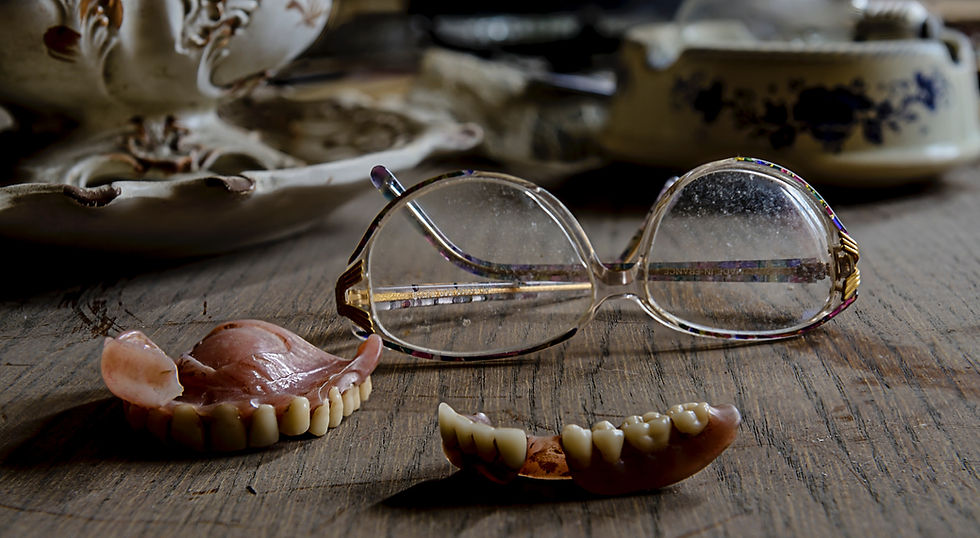What Happens When I Don’t Have Enough Teeth?
- Dr Jeremy Peter

- Dec 23, 2024
- 3 min read
Losing a tooth is not just an aesthetic concern; it can have a significant impact on both your oral health and overall quality of life. Missing teeth can lead to difficulty eating, speaking, and even affect the confidence in your smile; missing teeth can lead to far-reaching effects on oral health and overall well-being. So, what happens when you don’t have enough teeth?
Chewing and Eating
One of the most immediate effects of missing teeth is difficulty with chewing. Without a full set of teeth, certain foods may become difficult or impossible to chew, particularly hard or tough ones like apples or meats, and sticky foods like mango sticky rice or shrimp dumplings (har gow). Over time, this can lead to dietary restrictions and a less varied diet. Additionally, when food isn’t chewed well and broken down properly, it can affect digestion. You might find yourself eating only soft foods, which limits your nutrition.
Always remember this: nutrition, nutrition, nutrition.


Your Smile and Confidence
Missing teeth can also have a significant emotional impact. Your smile is one of the first things people notice, and when teeth are missing, you may feel self-conscious. People with missing teeth often avoid smiling in public or participating in social situations, which can affect self-esteem and confidence. Maintaining a confident smile plays a huge role in how you feel about yourself and how others perceive you.
Interestingly, I’ve had a number of patients over the years wanting to get their teeth restored or replaced because they wanted to go for job interviews or were wanting to get back into the dating scene.

Your Jawbone
When a tooth is lost, the jawbone in the area no longer receives stimulation from the tooth root. In short, this lack of stimulation triggers the jawbone to begin to deteriorate.
Imagine a garden where plants have been pulled out—the soil becomes less fertile, and over time, it becomes harder to plant anything new. The same happens with your jawbone. Without stimulation from the tooth root, the bone becomes “less viable” over time, leading to facial structure changes and difficulties with tooth replacement.
Shifting Teeth and Misalignment
When a tooth is lost, the adjacent teeth may drift to fill the gap, leading to misalignment. Teeth drifting can be disruptive, potentially causing problems such as uneven wear on remaining teeth, difficulty chewing, tooth decay, and food trapping between teeth.
Over time, misaligned teeth may require orthodontic treatment to correct, or worse, an extraction if any tooth is unsalvageable. Eventually, treatment may end up more complex and costly.

Long-Term Consequences of Not Addressing Missing Teeth
Failing to address missing teeth can lead to a chain of long-term consequences. Without intervention, bone loss will continue, teeth will shift, and misalignment will worsen. Over time, this can cause complications that are harder and more expensive to fix. For example, advanced bone loss can make it more difficult to place dental implants, and a crooked bite may require orthodontics. The longer you wait to address missing teeth, the more complicated and costly the solution becomes.
If you’re noticing the effects of missing teeth on your daily life, it’s important to seek advice from a dental professional sooner rather than later. Addressing tooth loss early can help prevent further complications and preserve your oral health for years to come.



